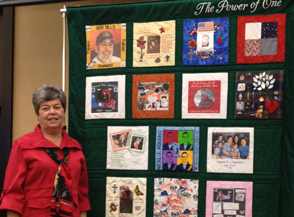For Older American’s Month this May, Consider Saving Lives

You’re never too old.
Older Americans make up 33.2 million of the United States population today and live longer lives thanks to advancements in medical technology.[1] As years extend and the retirement age of 65 stays the same, older Americans have more time than ever to make every day count. But for 18 people every day waiting for a life-saving organ transplant, time is running out.
 May is Older Americans Month, an opportunity to dispel the age myth keeping those 65+ from registering as organ, eye and tissue donors.
May is Older Americans Month, an opportunity to dispel the age myth keeping those 65+ from registering as organ, eye and tissue donors.
While 55 percent of people in central and southeast Ohio make the decision to donate, these same Ohioans take themselves out of the Ohio Donor Registry as they get older. Only 40.8 percent of these residents 65 and older are registered donors today.
Some of the reasons that keep older people from registering include the following:
“I can’t be an organ donor. I have diabetes, cancer, etc.”
No medical condition should prevent you from registering as an organ, eye and tissue donor. At the time of death, trained organ recovery professionals will review your medical history to determine if donation is possible. Recent advances in transplantation have allowed for more people to be eligible donors. For example, people with diabetes can donate; people who have had cancer, but have been cancer-free for five years, can be donors; and people with poor eyesight can donate their corneas.
“You don’t want my organs. They’re too unhealthy, too damaged, etc.”
People waiting for a transplant are typically much sicker than anyone considering registering in the Ohio Donor Registry. Medical professionals and clinical teams evaluate all organs and tissues to be sure only strong, healthy organs and tissues are used to save lives.
“My organs are too old to be used. Only young people can be organ, eye and tissue donors.”
More than 117,500 Americans are on the national waiting list right now waiting for their last chance at survival: a transplant. Without heroes who register as organ, eye and tissue donors, these people will die. For a candidate waiting whose organ has failed, organs recovered from older Americans can be transplanted to extend that patient’s life. There are no age limits for donation. The oldest organ donor in the U.S. was 92 at the time of death.
You’re never too old to donate.
Say Yes. Unleash your power at any age. Register as an organ, eye and tissue donor today at your local Bureau of Motor Vehicles (BMV) location or online by clicking here. For ideas on how to unleash your power, visit the Older Americans Month webpage and check out our Pinterest board and read below for personal testimonials on how Older Americans in central and southeast Ohio have saved lives.
Testimonials
Robert Sills saved lives as an organ, eye and tissue donor at the age of 65.
Donor wife Barb says you’re never too old to donate.
“After Robert retired, and with a number of health problems, he was still able to donate several organs, both of his corneas and tissue,” Barb said. “Even if you can just donate your corneas, know that’s important. I became an organ donor after Robert’s death because I saw how many people his organs, corneas and tissue were able to help and the huge need for organ donors.”
Barb said she was surprised when she heard older Americans were taking themselves out of the Ohio Donor Registry when they hit age 65. “Don’t re-evaluate what you can contribute as your age,” Barb said. “Know your decision to register as a donor can save lives!”
[1] U.S. Census Bureau
